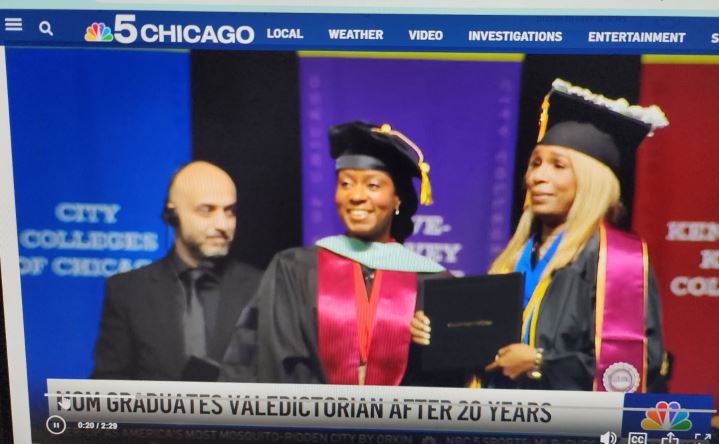America’s next frontier has always been built by hardworking women and men inspired to move our nation forward. The railroads that link Chicago to every corner of our country were laid by those at the forefront of a new era. Those who dreamed of seeing their work among the stars propelled America to the moon. The web browser, born in the state of Illinois, was developed by those who believed that with enough effort and enough know-how, a technological revolution could transform the way the world works, plays, and communicates.
America is investing heavily to bolster the current generation of technologies, ensuring that we have the fabrication plants we need to produce enough chips to drive forward the generative AI explosion, along with the cars and everyday appliances that need them. This is a critical and necessary goal, but as we build a stronger today, we cannot let it come at the expense of winning the race for our future.
To lead the world into this next frontier, we must ensure that American workers have the aptitude and opportunity to break the boundaries of what is possible today. It is the design of new, innovative chips in silicon and beyond silicon that will define this new frontier in AI, quantum, and biological computing, and as we increase manufacturing capacity here in the United States, our innovation and workforce capacity must be built along with it. A large workforce shortage for these technologies is expected in the next decade. Without a concerted effort, we will not have the trained engineers, scientists, and skilled technicians who will design the future of the industry. We need the workers in microelectronics, AI, and quantum technologies to innovate, the workers whose efforts will protect our national security, and the workers who will ensure that our future is built on American soil, with American ingenuity. We need more students to choose chip design and the manufacturing of tomorrow.
We need deeper collaborations between industry, academia and professional educational institutions to grow the collective workforce capacity. Industry professionals teaching this work and the physical tools needed to practice and learn technologies of today and tomorrow. And we need more students, from every background, excited to take on these challenges. Partnerships across universities, community colleges, and institutions serving the underserved will be critical to bridge the gap in demand.
That is why, as part of Illinois’ North American Semiconductor Network (NAScNT) vision, we have begun to rethink and re-imagine the tools, resources, and support we can give our workers as they build toward the future.
The forthcoming NAScNT Workforce Center of Excellence (COE) has been designed to drive these efforts forward, utilizing Illinois’ world-class research institutions and the students who study there, our two national labs, and our skilled and organized workforce.
NAScNT’s Workforce COE will serve as a hub of innovation and training, including a manufacturing and simulation center to better help students learn the craft. This COE will also include new chip design degree programs at City Colleges of Chicago, Chicago State, and UIUC, and expand existing joint industry-university-national laboratory partnerships that give students training experience with those doing the work. Illinois is home to the Hire 360 training center, which partners deeply with organized labor to prepare underserved communities and residents for jobs in advanced construction and manufacturing sectors, including AI, quantum and chips infrastructure. The inclusive workforce initiatives embedded in the Chicago Quantum Exchange’s EDA Tech Hub is charting the future of quantum workforce development. Our state graduates more computer engineers, electrical engineers, and computer scientists than almost any other state outside of California.
We believe that utilizing the entire American talent pool, promoting and inspiring chip design and innovation careers in academia, and fostering workforce partnerships to pair driven students with industry innovators is the best way to give American workers the tools they need to do what they do best: drive our nation forward. America must also stay as the destination of choice for the talented and willing from all around the world, especially the talent that is already here in our academic institutions, who must be provided an opportunity to stay and achieve their aspirations.
Harnessing the power and promise of every American requires breaking down current boundaries. It means that regardless of ZIP code or upbringing, you have a chance to learn and lend your talents to these important efforts. We do a disservice to our nation when we fail to unleash the full might of the American people.
We hope that Illinois’ collaborative vision across the Midwest can serve as a model for other states grappling with similar challenges. The innovation ecosystem growing here is the result of direct and intentional planning meant to solve our toughest problems and tear down our biggest obstacles. Innovation ecosystems can help ensure that progress is self-perpetuating; when any one piece of the ecosystem improves, the entire ecosystem improves. Building a skilled workforce ensures industry partners have access to more talent, future students more on-the-job opportunities, and academics more insights needed to build better curriculums.
We have focused on these efforts because we recognize the stakes. We are once again on the precipice of a new frontier, and American leadership in the technological future is dependent on developing the necessary workforce today. This is not just a race to design the chips of the future, but a race to decide what that future itself could look like.
The will and determination of the American workforce has always been our biggest advantage, and it is up to us to provide them with the training, tools, and opportunities they need to succeed.
Rashid Bashir is dean of the Grainger College of Engineering at the University of Illinois Urbana-Champaign. Farah Fahim is a senior engineer specializing in mixed signal ASIC design at Fermilab. Juan Salgado is chancellor of City Colleges of Chicago.
To read it in Crain’s Chicago Business, click here.





